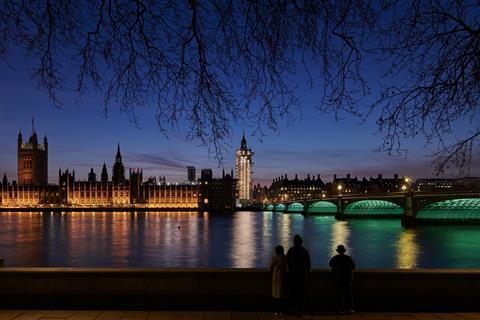DLUHC publishes consultation on changes including “British Homes for British Workers” test and new income restrictions
The government has unveiled its plan to restrict social housing to those with a connection to the UK and local areas.
The Department for Levelling Up, Housing and Communities (DLUHC) has today published its consultation on changing the rules governing how social housing is allocated.

As reported last week, the government is planning to introduce a “United Kingdom connection test”, branded by the Conservative Party as “British Homes for British Workers”. It is also proposing restricting social housing to those under a level of income and disqualifying applicants who have unspent convictions for anti-social behaviour.
Under the government’s proposed UK connection test outlined today, in order to be eligible for social housing, applicants would have to demonstrate they either a British or Commonwealth citizen or that they have lived lawfully in the UK for 10 years with recourse to public funds or that they have arrived in the UK on a “safe and legal resettlement or relocation scheme”.
The government is also proposing a new mandatory local connection test, under which applicants will have to show a connection with a local area for at least two years. Councils would be permitted to set a longer period if they wished.
We are making sure the allocation of social housing is fairer for people and cracking down on rule breakers. pic.twitter.com/pfTgT8bUK5
— Conservatives (@Conservatives) January 30, 2024
The Conservative Party is now using the slogan ‘British Homes for British Workers’
This would replace the current system under which councils can choose whether to introduce a local connection test or not.
“Requiring that every social housing applicant must pass a local connection test will incentivise households to make sustained links to their communities, whether through work, family or residence, before they qualify for social housing,” said the DLUHC.
DLUHC also said it intends to introduce a mandatory “income test” meaning those with an income above a yet to be determined level will no longer qualify for social housing, it is seeking responses from the industry to determine the threshold.
The government also said it intends to disqualify applicants who have unspent anti-social behaviour convictions or civil sanctions in the area where the offence was committed.
It is considering a disqualification period of up to five years and is proposing exemptions where disabilities or conditions, or domestic abuse are a mitigating factor. It confirmed it is also committed to a “three strikes and you’re out” policy whereby landlords will be expected to evict tenants who have three “proven instances” of ASB and have received three warnings.
Lee Rowley, housing minister, said: “Social housing is a finite resource and in any compassionate society, it is incumbent upon the government of the day to ensure it is utilised in the most effective way to support those who truly need it and those who play by the rules.”
The plans have already proved controversial with the social housing sector. A total of 14 housing bodies earlier this week sent a letter to the prime minister and housing secretary Michael Gove opposing the plans.
>>See also: Housing Today calls for affordable housing funding review and planning overhaul
>>See also: Fourteen housing bodies sign letter opposing ‘British homes for British workers policy’
The letter said that imposing extending qualification periods “is likely to force more people into homelessness.”
It said: “If the government’s main concern is to increase the availability of social lettings, it could achieve this far more effectively by building more social housing.”
The letter was signed by the Chartered Institute of Housing, the National Housing Federation, the Local Government Association, the Association of Retained Council Housing (ARCH), PlaceShapers, Homeless Link, Shelter, Crisis, St Mungo’s, Generation Rent, The No Accommodation Network, the joint council for the welfare of immigrants, the Welsh Refugee Council and Tai Pawb.
The consultation runs until 26 March.











No comments yet